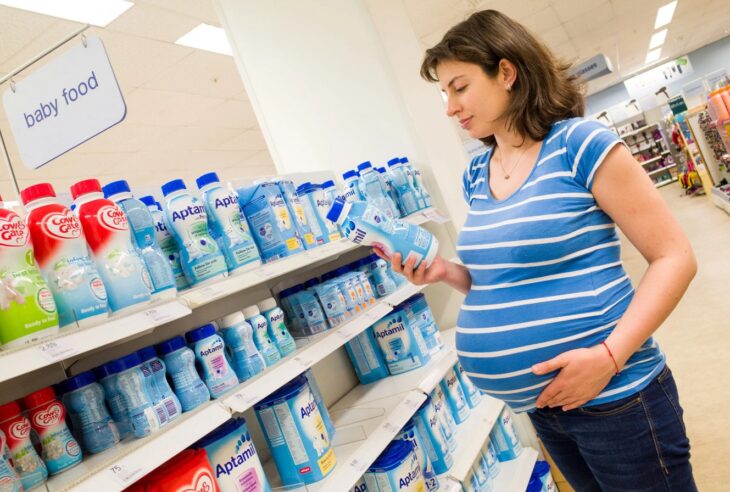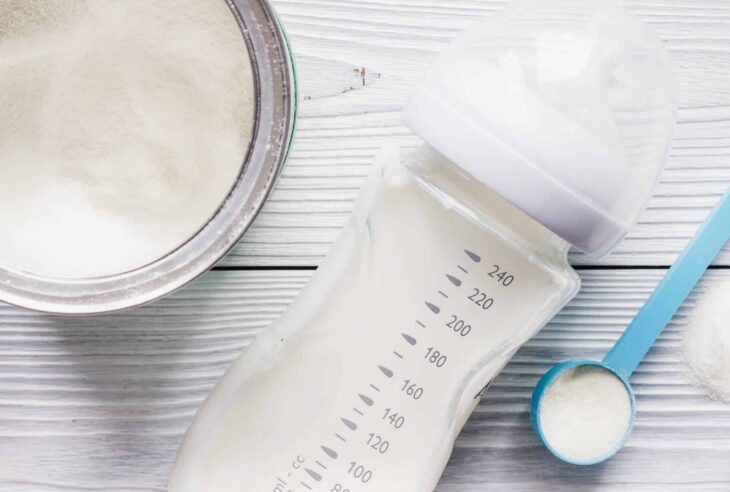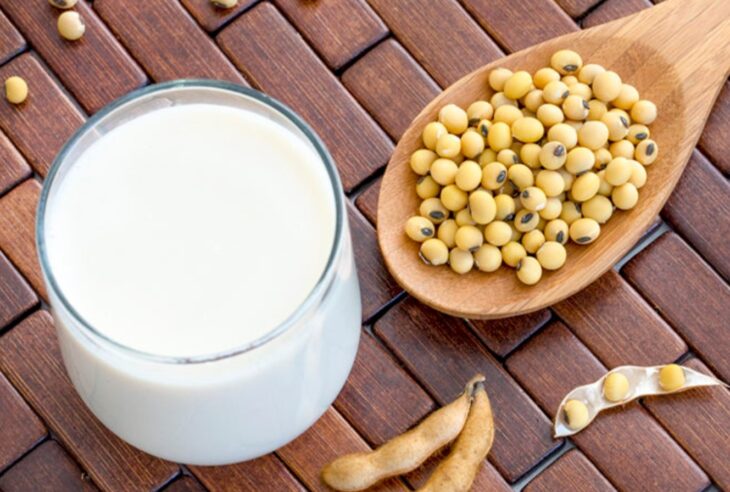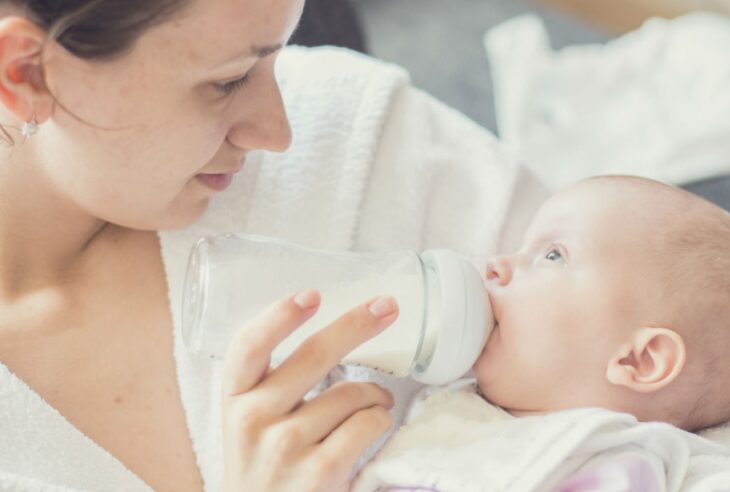It seems as though when one’s fire gets put out another comes about. Within the last decade, organic foods have become more widely available and produced for our baby’s products. For many parents, this is exciting news! Unfortunately, new lawsuits against popular baby brands with the use of heavy metals have caused many parents anxiety. Parents are now looking further into the products and hidden ingredients in their baby’s food. This movement has led to many parents asking about the quality and availability of organic baby formula. Our guide will help answer common questions when transitioning into organic European baby formula – the safest organic formula on the market today. Visit this site to check out the European formula options.

Source: Parents
Contents
- #1 Do European Baby Formulas contain GMOs?
- #2 What are GMOs?
- #3 Why avoid artificial ingredients?
- #4 Is Soy bad?
- #5 Do European Baby brands allow for Heavy Metals?
- #6 How are European organic regulations different?
- #7 What are Stages in European Formula?
- #8 Do European Formulas have Sensitive Options?
- #9 Where can you get European Formula?
#1 Do European Baby Formulas contain GMOs?
No they do not; GMOs can only be cultivated or sold for consumption in the EU after they have been authorized at the EU level. This process includes a scientific risk assessment, unlike in the USA. GMOs are carefully scrutinized and authorization of the use of GMOs are rare and carefully limited, especially in infant products.
#2 What are GMOs?
A genetically modified organism (GMO) is any plant or animal whose DNA has been altered using genetic engineering techniques. What happens is that the DNA of seedlings and/or sex cells in animals are altered to produce a certain “type” of product. The immediate effects on those consuming are unknown, however, some studies suggest that results may be toxic or be linked to long term effects.

Source: Gentle Nursery
#3 Why avoid artificial ingredients?
Artificial ingredients are lab made chemicals, these chemicals are made to mimic nutrients and/or organic materials. The consumption of artificial ingredients are known to cause inflammatory responses in the body, and contribute to toxicity and autoimmune diseases.
Organic European formulas do not contain any artificial ingredients; as per EU regulations.
In addition, some toxic ingredients are often found in USA formulas:
- Corn syrup, high fructose corn syrup, and other added sugars
- Added DHA and ARA. The artificial DHA/ARA that is lab produced can have dangerous impacts. The natural DHA and ARA are commonly processed using hexane solvents known to be a neurotoxin. In the EU, they ensure if the DHA/ARA was extracted through the hexane process that there is no residue remaining in the product – it is unclear if American formulas go through this same process. Furthermore, there are a few EU formulas that offer alternative natural sources for their DHA/ARA derived from algae plants; this process completely forgoes the hexane extraction process and provides a vegetarian friendly alternative for DHA/ARA.
- Carrageenan is used in powdered or liquid products to stabilize or thicken them. It has no nutritive value. It can be found in infant formula even though it has been proved in numerous animal based studies that carrageenan is harmful, causing intestinal inflammation and linked to colon tumors.
#4 Is Soy bad?
Soy, especially processed, contains estrogen mimicking compounds called phytoestrogen and isoflavones. Studies have observed that these compounds promote the growth of cancer cells, impair female fertility, and cause dysfunction with thyroid function.
American formulas typically use soy as a filler in both organic and non-organic formulas. Even though research has shown the issues and controversy with soy, you will still see it in the ingredients labeled as soy oil and soy lecithin. Organic European formulas do not contain soy, so you can rest assured that by switching to EU organic formulas you can avoid the soy.

Source: Healthline
#5 Do European Baby brands allow for Heavy Metals?
No. The European Union and the UK have strong regulations outlawing the use and exposure of heavy metals. In order to ensure this, all product manufactures must include in the label all naturally occurring minerals as well as added minerals and their quantities to ensure that even naturally occurring compounds are regulated and kept within the safety margins. Contamination generally has a negative impact on the quality of food and may imply a risk to human health. European legislation sets up maximum allowed limits in foodstuffs also. EU regulations cover the following heavy metals: cadmium, lead, mercury, inorganic arsenic, and inorganic tin.
#6 How are European organic regulations different?
We all know that organic food is better and safer than non organic, but what makes the EU organic better than the American organic relies heavily on the regulations. European organic standards supersede those of the United States by viewing the farm as a living organism. This perspective urges organic practices from the soil that is used to grow the plants that are then fed to the livestock which produce byproducts such as milk. Animals and all livestock are treated humanely without the use of antibiotics and hormones. Living conditions are heavily regulated and use of medical products on the animals are solely used to maintain health. Antibiotic use and hormone treatments in livestock have been known to find themselves in the milk, causing disruption and antibiotic resistance in the consumer; this is why the EU regulates this extensively to avoid any of these issues.

Source: Today’s Parent
#7 What are Stages in European Formula?
European formulas are designed slightly different in the sense that they break down into stages. The stages often cover the first 6 months as PRE or stage 1 formulas. These early stage formulas are designed to closely mimic the Whey:Casein ratios in breastmilk. The balance in protein allows for easier digestion. Additionally, the formula contains more natural milk fat and less lactose. For younger, developing babies, this special attention and differentiation helps babies more than a single stage for the entire first year of their life would.
In stage 2 formulas we see the ratio change to start preparing little bellies for regular cow milk, also meaning less fatty milk and more lactose. Lastly, the stage 3/4 formulas are designed for toddlers. The milk closely resembles cow milk while being fortified with nutrients.
#8 Do European Formulas have Sensitive Options?
Sensitive options are widely available. The EU provides clean, organic options if your baby is suffering from acid reflux or a cow milk protein intolerance/allergy; there are options for your little one in any sensitive situation. Additionally, European formulas offer a few goat milk options for sensitive bellies, without compromising nutrients.

Source: Valio
#9 Where can you get European Formula?
Getting quality product imports is important and it is highly recommended to access through a verified online store. Though some sales are found on local online flea markets, these can sometimes be tampered with. Reliable online stores with verified purchasers often have direct access to licensed manufacturers directly in Europe. The link we offered at the beginning of this article will take you to a trusted site, with amazing customer service for any other questions you may have about the EU formulas.
Conclusion
According to Organic Life Start, European baby formulas are held to a much stricter level of quality than US based competitors. European formulas do not have any GMO’s, don’t use any soy, sugar, corn syrup, or any artificial flavors and no synthetic preservatives.
We hope that our simple guide has been able to answer your basic questions about EU formulas. There is so much more to learn, especially which EU formulas would be best for your little one, so we encourage you to keep researching. The verified site we suggested has plenty of blog articles to help you in your search, and even ultimate guides in each product they offer. Make sure you do the extensive research and follow that up with a chat with your pediatrician to ensure your baby receives the absolute best formula.
